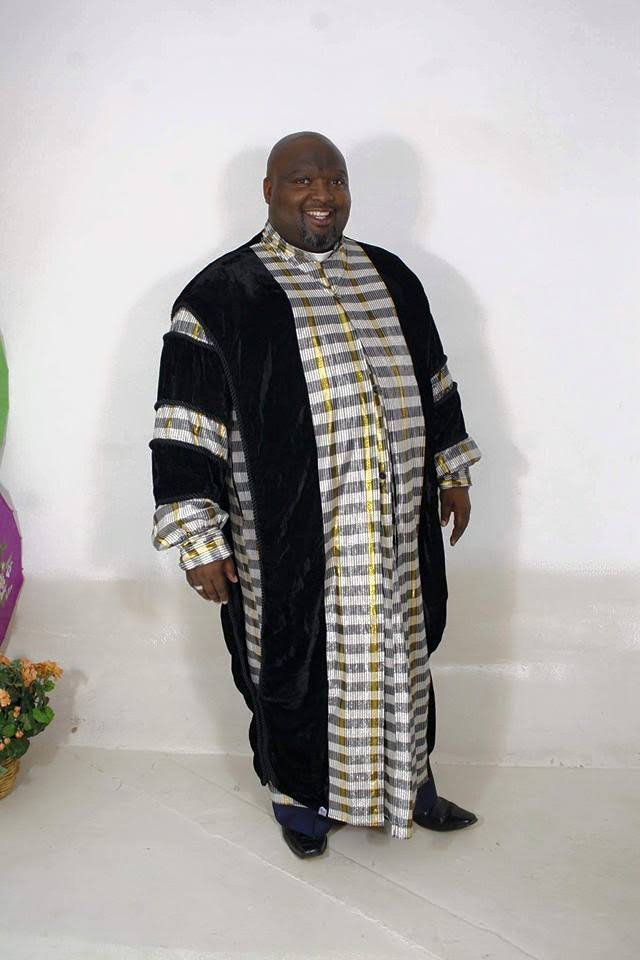Rev. Dr. Dimpho Gaobepe, 19th Episcopal District
The election of an African lay president, Brother Matikane Abednego Makiti, to the Connectional Lay Organization of the African Methodist Episcopal Church marks not merely a change in leadership but the dawning of a new era. This historic milestone will be remembered for generations. It represents far more than a victory for the 19th Episcopal District or the African continent. It is a prophetic confirmation that the entire African Methodist Episcopal Church is evolving into its fullest identity. It proclaims that leadership in our Zion is defined not by geography but by God’s grace, faithful service, and spiritual vision.
For too long, Africa’s leadership in international ecclesiastical forums has been undervalued and underutilized. While the continent has often been praised for its numerical growth and spiritual vitality, it has frequently been sidelined in the development of institutional policy and strategic vision. Africa has been seen as a mission field, rather than a dynamic source of mission. However, that narrative is now corrected. The rise of a continental African to the highest lay position in the AME Church signals a long-overdue recognition that Africa has not been lagging, but rather it shows that Africa has been ready.
Even amid economic hardship, political complexity, and social upheaval, the AME Church in Africa has consistently produced faithful stewards, courageous pastors, and visionary lay leaders. These individuals have led with integrity, perseverance, and deep theological conviction. The significance of Brother Makiti’s election is not symbolic alone; it is a confirmation of the Church’s divine wisdom when it entrusts the whole body to lead. Africa is not a peripheral branch of the Connectional Church; it is central to its present strength and future sustainability.
Brother Makiti’s ascension to the presidency of the Global Lay Organization is not merely an act of inclusion. It is a victory for authentic connectionalism, a model of church governance where talents are identified, nurtured, and empowered for the good of the entire body. His leadership is a fruit of years of faithful lay ministry shaped in African Conferences, Episcopal Districts, and congregations. This moment echoes the very founding of our denomination.
Bishop Richard Allen, born into slavery and later self-liberated, dared to imagine a church where dignity, leadership, and Black excellence were not exceptions but foundational. Today, our African Global Lay President continues that legacy by challenging the ecclesiastical ceiling, dismantling inherited colonial mentalities, and calling the Church to be a more faithful reflection of itself. His election is a clarion call that leadership must represent the Church’s global witness.
If the AME Church is to fully reflect its soul, its strategic leadership must reach beyond the continental United States. The Church’s African presence is not a burden to be managed; it is a blessing to be embraced. This moment invites the entire denomination to open its eyes and recognize what God is doing through Africa. It is not a sentimental shift but a strategic one. Not a change of heart, but a change of plan.
For generations, a subtle yet pervasive narrative has existed within the global Church: that leadership at the highest levels belongs to particular regions or individuals. This view implied, either explicitly or implicitly, that Africa could provide faithful followers, fertile mission fields, and deep spirituality, but not capable leaders. It was believed that African voices, though inspirational locally, did not belong on the global stage of governance, strategy, and doctrine.
But now, that narrative is changing.
The election of Brother Makiti and the elevation of Bishop Wilfred Messiah to Senior Bishop across the entire Global African Methodist Episcopal Church stand as prophetic and powerful corrections. These leadership roles are not anomalies; they are fulfillments. The AME Church, founded in protest against exclusion in 1787, has always proclaimed that all people, regardless of race or origin, are equal in the eyes of God. Yet, even within this liberationist tradition, structural and representational gaps have persisted. This new chapter is therefore not just a change in officeholders; it is a historical correction and a re-commitment to the Church’s founding vision.
As Galatians 3:28 reminds us: “There is neither Jew nor Greek, slave nor free, male nor female, for you are all one in Christ Jesus.” The rise of African leadership is an embodiment of this truth. It proclaims that leadership in Christ’s body is determined not by lineage or location, but by divine calling and faithful service. It reflects the radical inclusiveness of Jesus’ ministry and the living doctrine of connectionalism.
The doctrines of itinerancy and shared governance, core to our AME polity, are made real in this moment. The election of an African Lay President and the elevation of Bishop Messiah as Senior Bishop in the Global AME Church reflect a Church that is finally aligning its structure with its theology. No longer are these principles merely words in the Discipline; they are being lived out in global witness.
This is also a missional moment. The Church now has an opportunity to listen to the wisdom that has long flowed from Africa. This continent birthed early Christianity, nurtured spiritual resilience, and developed deep communal theology. Bishop Messiah is not only a skilled administrator but also a shepherd whose pastoral heart is deeply rooted in African soil and whose vision stretches across oceans. Likewise, Brother Makiti represents a lay voice formed through decades of struggle, triumph, and tenacity. Together, they embody a future where the AME Church is truly global, united, empowered, and strengthened by diverse leadership.
This milestone is not a triumph for Africa alone; it is a gift to the entire AME Church. It calls us to imagine a denomination that is more inclusive, bolder in its discipleship, and more accurately reflective of the reign of God, where all peoples and nations are equal before the throne.
For this new day, we give thanks to God. May it serve as a sacred reminder to press on in the work of justice, equality, and faithful service until every false narrative is dismantled by the liberating truth of Christ’s love.
The same God who raised leaders from Allen’s Philadelphia is now raising them from Soweto, Harare, Nairobi, Accra, India, Trinidad and Tobago—and they are ready to serve. The question is no longer, “Can Africa lead?”The question now is, “Are we willing to follow what the Spirit is doing through Africa?”
Africa has risen. The Church must rise with it.
The Rev. Dr. Dimpho Gaobepe, Ph.D., is a theologian, strategist, teacher, and AME pastor in the 19thEpiscopal District of South Africa. He works in the fields of government, education, ministry, and community leadership.





